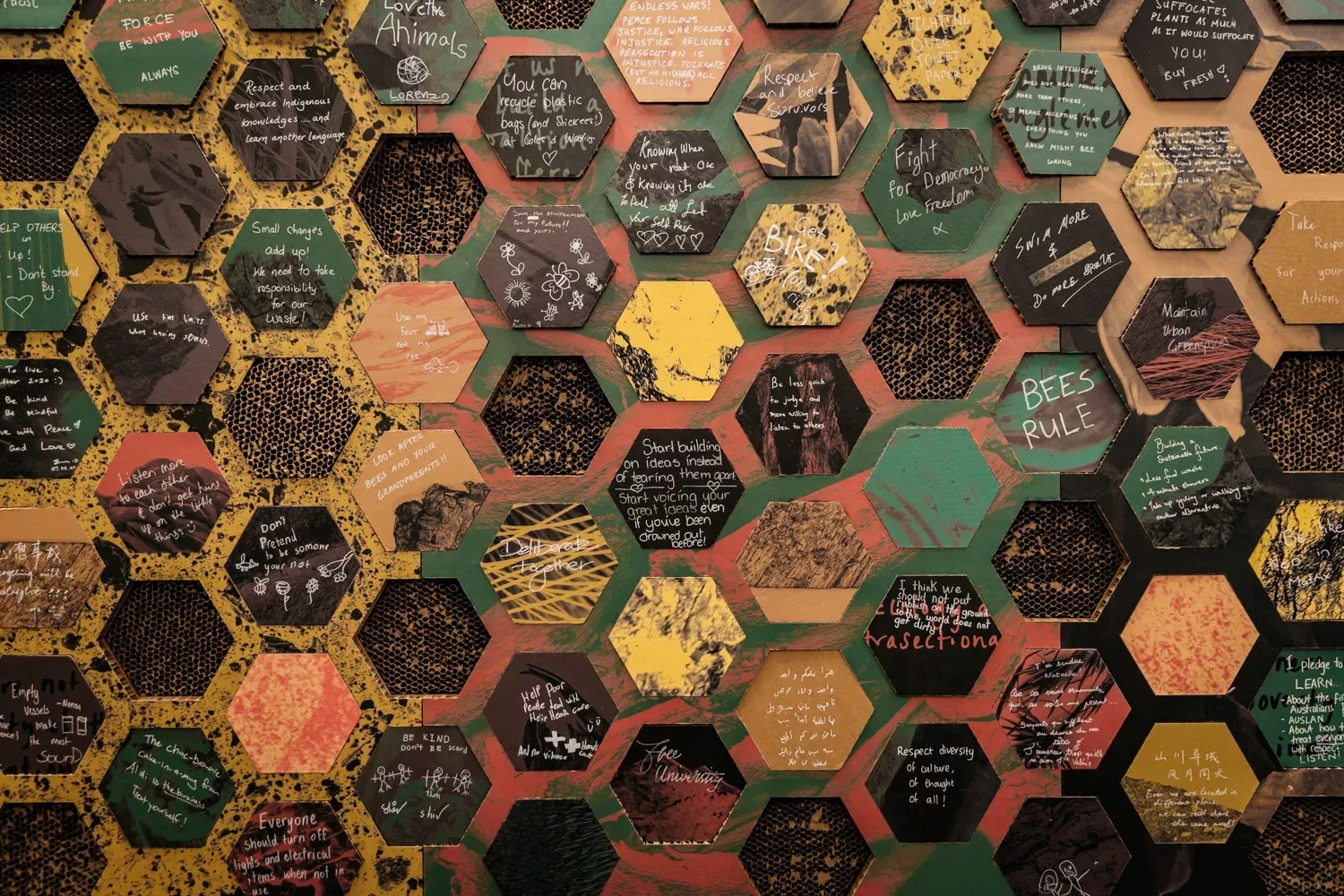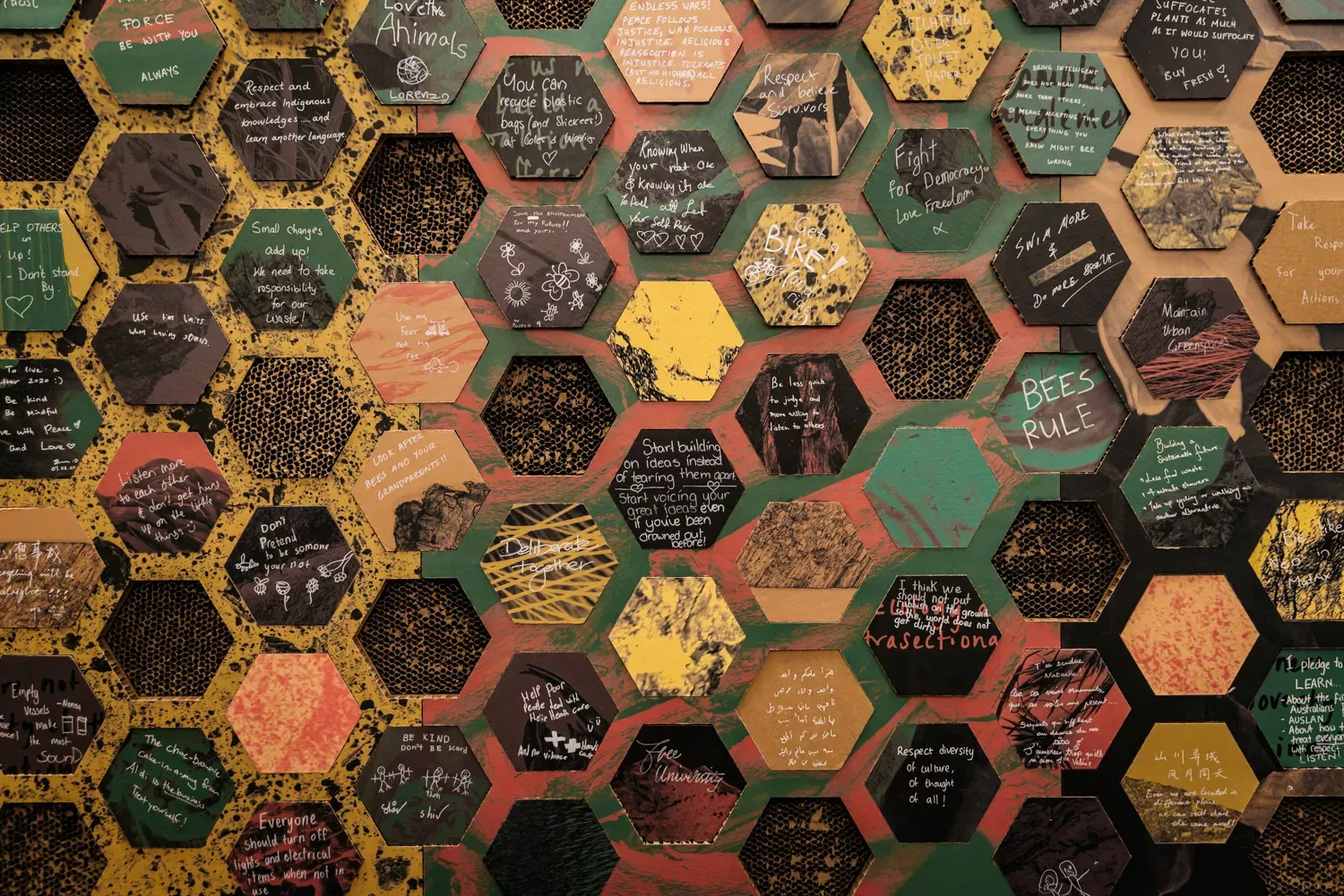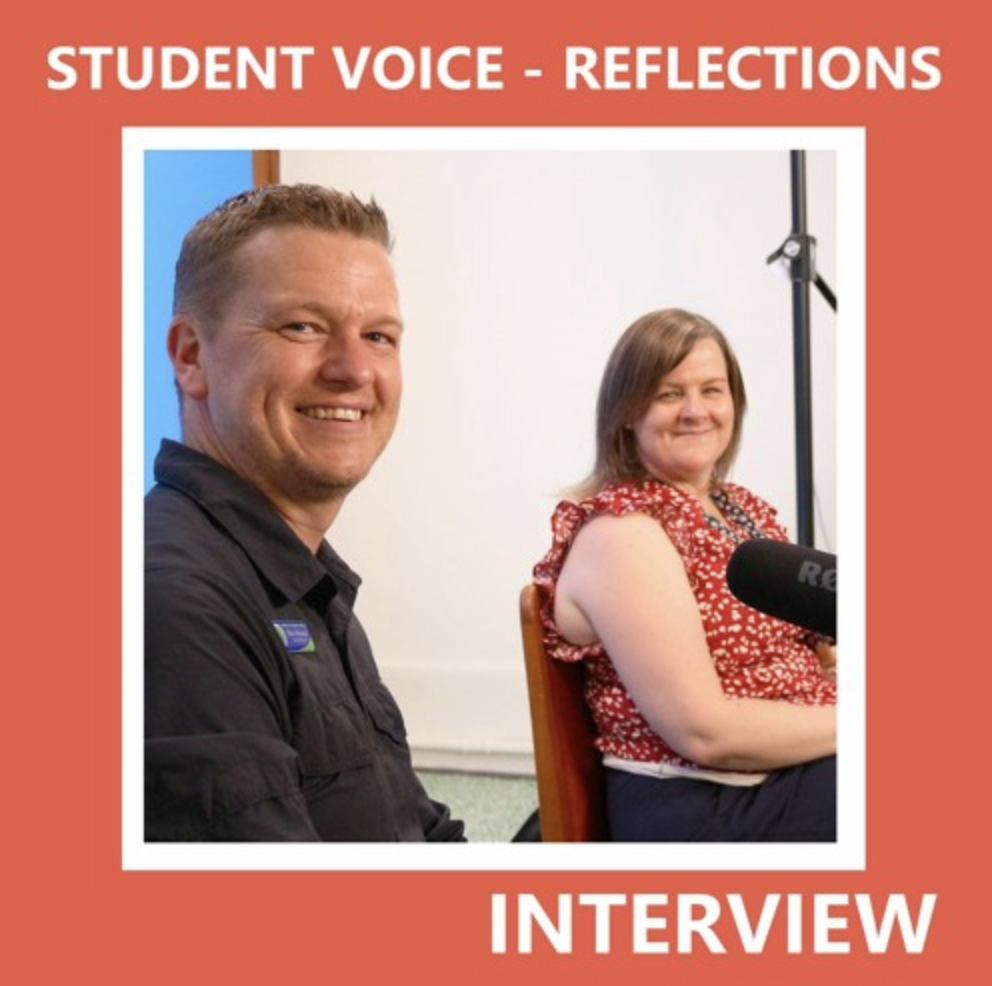

Student voice – school leadership
Educators discuss how they empower student voice.
Marc and Marissa from Bonython Primary School talk about how they create an environment where authentic student voice and agency shines through.

Student Voices - Episode 4
0:00
[Music playing]
Stephanie Smith: Welcome to a podcast from MoAD, the Museum of Australian Democracy at Old Parliament House. My name is Steph, and I'm joined by educators Marc and Marissa from Bonython [Primary School]. We're here to discuss how their school supports student agency and voice in the classroom.
Welcome to our podcast episode today. We're keen to chat with you about student voice at Bonython. So, to start our conversation, can you introduce yourselves, and give us a little bit of your background, and why you're passionate about this approach to learning. We might start with you Marc?
Marc: Yeah, so thanks Steph. So I'm Marc, and I'm one of the deputy principals at Bonython. I think as a leader myself, obviously I want my own voice heard, but it's crucial that when we're working with our learners that they do have a voice in what they learn and how they learn. So, certainly in terms of what we believe about learning, where curiosity is key, and we have a very strong inquiry-based approach, but that is certainly a strong driver for getting up every morning and working with the amazing kids and ideas and the voices that they bring to the table.
Stephanie: That's wonderful, thanks for sharing that with us Marc. Now Marissa, tell us a bit about your background and your role at Bonython.
Marissa: Okay so, I'm an executive teacher at Bonython, and for the last few years I've been leading the 5/6 team. So, we have four classes in our 5/6 team, about 115 students there.
Stephanie: That's lovely. So why is student voice important in that space, in your team?
Marissa: So obviously, with 5/6 students being the older students at our school, providing them with that opportunity to have voice and choice over their learning, and we do that through the way in which we teach, through the inquiry approach, and I guess seeing the impact that that has on them inspires us to continue to take that further each and every time.
Stephanie: And for you, are your classes in stage three, are they set up separately, so it's one teacher with one group of students, or do you work in a different way?
Marissa: So, we are very big on collaboration, so our team of four teachers work collectively together and within the unit they work in pairs, so two classes work together with two teachers, so we're very big on collaboration and that allows us to respond to the students' needs as best we can.
[Music playing]
Stephanie: Now, I'd like to talk about a fantastic example of student voice that you implemented across your school, so Marc can you talk to us about that big project that you worked on, and what instigated the student voice and change?
Marc: Yeah, so every school has house groups. We had four house groups that, over time, I think possibly the identity of them had been lost. But one of the problems that was realised was that there was one house group that just won everything all the time. And when we did a bit of exploration as to why that was the case, it was because, well most of the kids in the school were in that house because it was purely done alphabetically, so if you were an A to L or whatever, you were in this house.
Marissa: Yeah, so our 5/6 students said to their teachers they were unhappy about that, so the teachers turned that problem into an opportunity, and engaged in a data inquiry, so they basically said, 'Right, prove it.' So, the kids researched and collaborated together to then, yeah, turn that into an opportunity for authentic learning. So they actually did prove that it was unfair, they then proceeded to come up with proposals for how to rearrange and make them more fair.
Stephanie: Wonderful. So, I understand that from that process you then were able to reallocate the students across the houses to make it more equitable based on students' voice. So, then what was the next stage in the process?
Marc: Yeah, so then we reallocated according to... [interruption]
Marissa: It was according to seasons. Just to start with.
Stephanie: Oh, excellent!
Marc: The proposals that were voted on by the students, and then there was one which was then put forward and that group of students then attended the school board meeting, and they shared the project to-date, and then they kind of put a proposal to the board. The school board became really involved and active in terms of listening to our students come to the table – here's a decision, here's a proposal, let's move forward.
Marissa: So, the 5/6s the next year, because of course this change takes time, the inquiry they engaged to was researching notable Australians who demonstrate the guides, not just from a sporting perspective, so looking at all aspects, so looking at the arts, science, technology, who are leaders that are notable Australians that demonstrate these guides in their work and the way they interact with others. So that became an authentic inquiry into who are those people who are notable, who we can use as our namesakes for houses.
Marc: Yeah, so we're a school that values: grit, integrity, we embrace diversity, we show empathy for others, and we self-manage. So, what I guess our hope for the new formation [of] house groups in terms of their identity was, we wanted them to showcase and reflect back on the school values.
Marissa: The 5/6 students engaged in it that year, but we also opened it up to the community, we also opened it up to staff members, we also opened it up to students across the school to submit nominations. They then proceeded to a school-wide vote, and every student across the school got to vote from that shortlist of who they thought would be the best representatives, best connected with our guides.
Stephanie: So now I understand that you have these fantastic new leaders that represent the houses, and that you've recently decided to restructure how you select your student leaders. So how does that fit into your house groups?
Marc: We’ve moved away from the, like, student representative council model, because we really wanted to amplify and reinvigorate, what does a house group really mean? And we held a leadership conference day, and so we had a range of different speakers and workshops just to give them some insight. Then from there, they had to write a speech about what they valued, and what they thought they would bring to the leadership of the house groups, and then they undertook, within their house groups, their own democratic voting process. And then from that, we've ended up with a leadership team.
Stephanie: Lovely, that's fantastic. So, where to next? Now you've got this fantastic leadership team to work with, what are your aims and goals with them?
Marissa: So, as Marc said, our focus is really about empowering our student learners and empowering them to explore their passions. So, we have our personal world, our social world, our physical world, and our natural world, and each of those align with each of our houses, so we're looking at how can our students from K to 6 can engage in authentic inquiries together, fitting within those worlds. So, you might end up with a house that represents the natural world, inquiring into something to do with sustainability, which our school is also very passionate about. So, those things are still being reshaped as we go, and this year we are working very closely with the house captains to get their input into where we think that might go.
Stephanie: That's wonderful. Thank you so much for sharing with us today, it's really inspiring to hear your passion, and I know that you are doing such great work out at Bonython. And I really love hearing about the way that you work with students, and how you're incorporating their voice, and I can see that it has been a journey, and that you've absolutely invested the time with your teachers, and with your students, and your community to make this approach work. And I look forward to seeing where it goes, and what the rest of the year and future years hold for Bonython.
Thank you for joining us for this interview with Bonython school leaders, Marc and Marissa. If you haven't already, I recommend you listen to our three-part series on student voice, where we hear directly from Bonython's year 5/6 students. We challenge you to learn more, be more and do more.
[Music playing]



